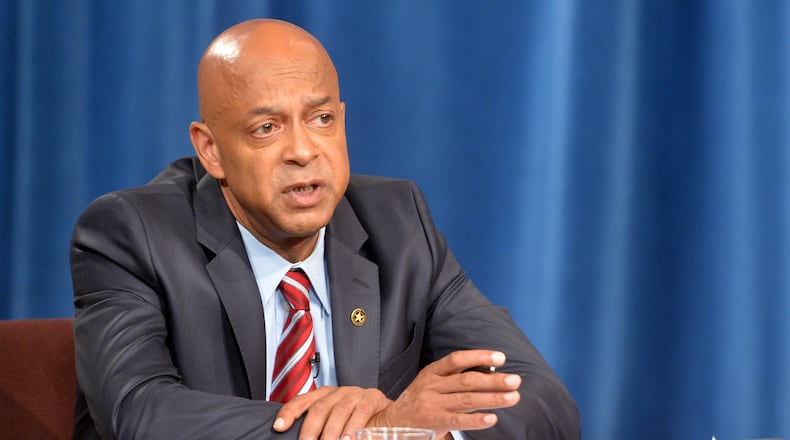After criticism from the Trump administration, the DeKalb County Sheriff's Office announced Tuesday it will no longer detain inmates for immigration "without a warrant or other sufficient probable cause."
Sheriff Jeff Mann said he’ll release inmates against requests from U.S. Immigration and Customs Enforcement to hold them after they otherwise would be cleared for release. ICE asks for 48 hours to check for federal immigration law violations, but Mann said he fears holding the inmates that time could violate the Constitution’s Fourth Amendment.
“I requested and received a legal review of this practice,” Mann said in a news release. “The law does not allow us to hold anyone without probable cause. If our judicial system determines that an individual should no longer be held in custody, it is not in my authority to countermand that decision.”
The DeKalb and Clayton sheriff’s offices were included on a list released by the Trump administration Monday of 100 law enforcement agencies that are “limiting” cooperation with ICE.
It isn’t clear what consequences, if any, could come DeKalb’s way.
RELATED: Are 'sanctuary cities' legal in Georgia?
RELATED: Trump travel ban could heighten doctor shortage
RELATED: Atlanta immigration lawyer on Trump's crackdown: 'We are all swamped'
The administration’s report comes on the heels of President Donald Trump’s sweeping January executive order aimed at fighting illegal immigration. ICE is critical of local agencies limiting cooperation as it runs counter to Trump’s efforts, which he maintains will make America safer as undocumented immigrants who commit crimes are deported.
“At the end of the day, this is a public safety issue,” a senior ICE official told reporters on a conference call Monday, speaking on condition of anonymity.
Mann, who presides over a faithfully blue county that greatly favored Hillary Clinton over Trump, said he’ll still cooperate with immigration officials to detain unauthorized immigrants. He just doesn’t intend to hold inmates the extra 48 hours.
“We all benefit from a nation of laws that regulate the ways people can be detained,” the sheriff said, “and we should be grateful that is the case.”
RELATED: Police: DeKalb murder suspect found 10 years after cop let him escape
RELATED: DeKalb jail says it's the biggest mental health provider in the county
RELATED: DeKalb police: Cop arrested for tampering with crime scene
Like DeKalb County News Now on Facebook | Follow on Twitter and Instagram
About the Author
The Latest
Featured



